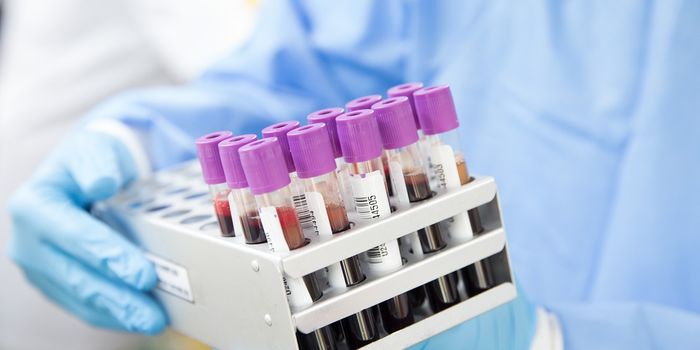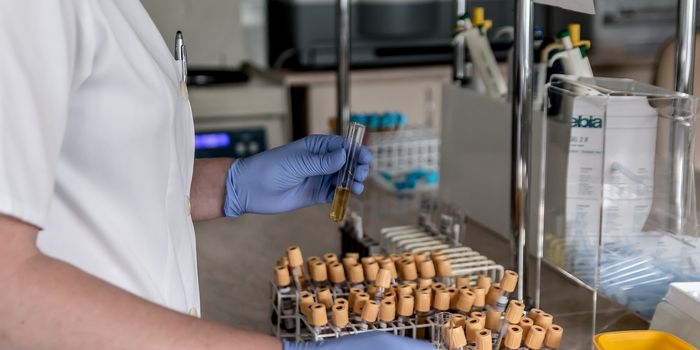Blockchain and Cancer: How This Tech Is Changing Research and Treatment
As blockchain technology becomes more prevalent in diverse fields, and the cancer and oncology community strives to better manage and apply research and treatment data, it seems natural for these two worlds to intersect.
A blockchain is a ledger that holds data in segments known as blocks that are cryptographically secured. It is typically called a decentralized system because it stores copies of the blocks on a spread-out network of computers -- not in a central server. Blockchains are hard to compromise, because someone would have to successfully alter all the linked computers “running the blockchain” simultaneously. This tech has many uses, including secure record keeping and peer-to-peer data exchanges. Many blockchains have a “native” digital coin or cryptocurrency, like the famous Bitcoin, which may behave as a currency, fuel and verify transactions, or fulfill other functions.
In concept, a fully decentralized public blockchain has no central point of oversight. However, blockchains can also exist as “private” chains to varying degrees, which are accessed and administered by specific communities and users. These private blockchains are proving to be useful in research and treatment settings for secure data management.
For example, the UK-based cancer research company Lancor Scientific is developing a blockchain system that will give patients control of their test results, allow them to share their data with the connected medical community and even make payments online with the blockchain’s token (a cryptocurrency based on the Ethereum blockchain).
The goal is for patients to store their cancer test results on the blockchain and then be able to choose to make them available to organizations studying “data patterns of the most at-risk groups,” the company states. In tandem, Lancor Scientific is launching a global cancer registry with an initial concentration on cervical cancer. By securely aggregating global data, the company hopes to zero-in on communities most in need of increased testing, particularly in low and middle-income countries. It is also utilizing AI and quantum physics in this undertaking.
“Approximately 80 percent of the world’s population don’t have access to screening programs. The trick is to reduce the number of people that you have to test. However, in order to get to those high-risk groups, you have to have a data set, which is aggregated and available for analysis,” CEO Aamir Butt said.
The government of Austria has supported Lancor Scientific’s efforts by inviting it to set up a cancer research laboratory in Graz, where a technical and medical university and biobank are already located.
The Germany-based company Camelot ITLab is now using a blockchain system called the hypertrust X-Chain solution to create an immutable audit and custody chain for the data of patients undergoing complex CAR-T cell immunotherapy treatments. It protects data through seven identified stages of this treatment: decision and initiation; cell/tissue harvesting, logistics, and processing; finished product distribution, treatment release and administration, and treatment follow-up.
“It requires a safe and seamless interaction of multiple stakeholders in the overall process. That is why it can heavily benefit from the blockchain technology,” Technology Lead Andreas Goebel said.
Meanwhile, U.S.-based Witty Health has developed OncoPower, a blockchain-based system and cryptocurrency that will be used for both records storage and as a patient-provider communication platform.
Within OncoPower, “A combination of gamification techniques and the ability to reward through cryptocurrency is used to drive stakeholders participation and performance,” according to Pharmaphorum. Participating patients are rewarded in cryptocurrency for behaviors such as reporting side effects, medication adherence, sharing their genomic data and healthy lifestyle choices. Oncologists can win crypto for creating content or virtual tumor boards and for monitoring patients’ input.
Another cancer-related application of blockchain is BreastWeCan.org’s use of this tech to secure breast imaging data donated by patients to researchers. Data amalgamation, storage and secure transmission appear to be some of the principle uses of blockchain tech in cancer research and treatment at this juncture. Blockchain is also being piloted as a means of improving options for communication between patients and providers and within research and treatment communities.
Sources: Verdict Media, Coin Telegraph, LongHash, Pharmaphorum










